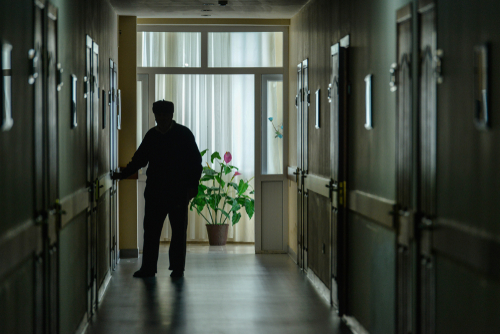Blog

10 Signs It Might Be Time For Assisted Living
July 5, 2024 0 Comment Category: Uncategorized
Senior Assisted Living
Deciding to move a loved one into an assisted living facility is never easy. It’s a significant step that involves emotional and practical considerations. However, recognizing when it’s the right time can ensure that your loved one receives the care they need while maintaining their dignity and quality of life. This article outlines ten key signs that it might be time to consider assisted living for your loved one.
1. Decline in Personal Hygiene
Neglecting Daily Grooming
A noticeable decline in personal hygiene, such as infrequent bathing, wearing dirty clothes, or neglecting dental care, can indicate that your loved one is struggling to maintain their grooming routines. Assisted living facilities provide support with daily activities, ensuring that residents maintain proper hygiene and feel good about themselves.
2. Difficulty Managing Medications
Missed or Incorrect Dosages
Managing multiple medications can be challenging, especially for seniors with cognitive impairments or complex medical regimens. If your loved one frequently forgets to take their medications or takes incorrect dosages, it can lead to serious health complications. Assisted living facilities offer medication management services to ensure medications are taken correctly and on schedule.
3. Mobility Issues
Increased Falls and Difficulty Moving
Frequent falls, difficulty getting up from a seated position, or trouble navigating stairs can be signs that your loved one is experiencing mobility issues. Assisted living communities are designed with accessibility in mind and provide mobility assistance, reducing the risk of falls and injuries.
4. Social Isolation
Withdrawal from Social Activities
Social isolation can have a detrimental effect on mental and physical health. If your loved one is withdrawing from social activities, avoiding friends and family, or expressing feelings of loneliness, it might be time to consider assisted living. These communities offer numerous social activities and opportunities for residents to connect and build friendships.
5. Poor Nutrition
Weight Loss and Unhealthy Eating Habits
Unintentional weight loss, empty pantries, spoiled food, or reliance on unhealthy, processed meals can indicate that your loved one is not eating well. Assisted living facilities provide balanced, nutritious meals and can accommodate special dietary needs, ensuring that residents receive proper nutrition.
6. Home Maintenance Problems
Clutter and Disrepair
An unkempt home with piles of clutter, dirty dishes, or maintenance issues like broken appliances or neglected yard work can be signs that your loved one is struggling to keep up with household chores. Assisted living communities offer housekeeping and maintenance services, allowing residents to live in a clean, safe, and comfortable environment.
7. Cognitive Decline
Memory Loss and Confusion
Cognitive decline can manifest in various ways, such as memory loss, confusion, getting lost in familiar places, or difficulty following conversations. If you notice these signs, it may indicate that your loved one could benefit from the structured environment and cognitive support provided by assisted living facilities.
8. Difficulty Managing Finances
Unpaid Bills and Financial Mismanagement
Unopened mail, unpaid bills, and financial mismanagement are common signs that a senior may need assistance with their finances. This can lead to serious consequences, such as debt or loss of services. Assisted living facilities often offer financial management support, helping residents stay on top of their financial responsibilities.
9. Caregiver Burnout
Family Caregivers Feeling Overwhelmed
Providing care for an aging loved one can be physically and emotionally exhausting. If family caregivers are feeling overwhelmed, stressed, or unable to meet the demands of caregiving, it may be time to consider assisted living. These facilities provide professional care, allowing family members to focus on their relationship with their loved one without the strain of caregiving.
10. Safety Concerns
Unsafe Living Conditions and Risks
Safety is a major concern for seniors living alone. If your loved one is forgetting to turn off the stove, leaving doors unlocked, or showing signs of unsafe behavior, it may be time to consider assisted living. These communities are designed with safety in mind, featuring emergency response systems, secure environments, and 24/7 staff availability to address any emergencies.
Conclusion
Recognizing the signs that it might be time for assisted living is crucial for ensuring the well-being of your loved one. Declines in personal hygiene, difficulties with medication management, mobility issues, social isolation, poor nutrition, home maintenance problems, cognitive decline, financial mismanagement, caregiver burnout, and safety concerns are all indicators that professional support may be needed. By considering assisted living, you can provide your loved one with a safe, supportive, and engaging environment that promotes their health, happiness, and quality of life.

leave A comment